Juan Jose Xacur and Andres Lebrija, the dynamic duo behind the successful IKIGAI Group, discuss their unexpected pivots from law and corporate marketing into the restaurant scene. Learn how the powerful Japanese philosophy of IKIGAI, the intersection of passion, mission, vocation, and profession, guides their ambitious journey and their unique approach to exceptional service. We at OysterLink recently sat down with Juan Jose and Andres to discuss different issues in the hospitality sector.
Please introduce yourselves and tell us briefly about your career paths
Juan Jose Xacur: My name is Juan Jose Shakur. I studied law in Mexico City. I'm from Mexico City, and I was on the verge of joining a law firm when I decided to open my first restaurant, IKIGAI. And from then on, I was completely in love with this business. And now we have 12 restaurants in Mexico City and two in Miami, which was a dream five years ago. And now we're here at it.
Andres Lebrija: My name is Andres Lebrija. I've known Juan Jose throughout my whole life. We've been both since our kindergarten days. Yeah, so I also had a different career path. I was into marketing and working in the corporate world. And then Juan Jose called me to hop on board this very cool project of IKIGAI Group in Mexico City.
As Juan Jose said before, we started out with a Japanese restaurant, but now we have 13 restaurants throughout Mexico City, five of them Japanese and four Italian. We have coffee specialties and Mediterranean, to name a few. And now we've embarked on this journey to open some of these brands here in the States, with Miami as our first stop. And now we've opened the AMAND Café & Bistro and also IKIGAI.
So what got you into this industry?
Juan Jose Xacur & Andres Lebrija: For me, since I was little, I was what you call a foodie. In my family, I was the one who made the checks expensive, it's what they said. But it's because I've always loved to eat, and in Mexico City, maybe 15 years ago, you could only really eat Nikitis in two places. And Andres and I went to the same chef almost every single week. And I always talk to him, and I started to see that the interaction with people recommending something to someone, and then seeing their face when they eat it. That's the short answer to your question; that is what got me into this business, man.
To recommend something or to create a plate to give to a client, and to see from afar just the face when he tries it. That is a very rewarding feeling. I love it.
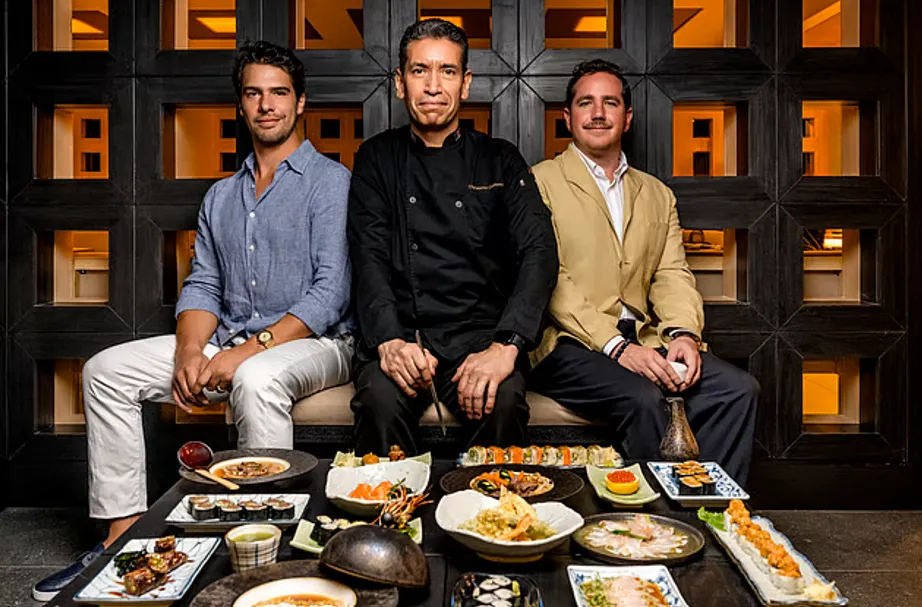
So I'm guessing this is the part of IKIGAI that says what the world needs. So how did you combine the dining experience with the pillars of Ikigai?
Juan Jose Xacur & Andres Lebrija: Exactly, without a doubt. I'd love to elaborate a little bit about that! Well, it's funny. One of the co-founders, called Javier Alvarran, was my best friend and a very good friend of Andres. He's not with us anymore. He passed away three years ago, but he co-founded IKIGAI with me, and he was the one who came up with the name. I told him, like, man, I gotta get the spot, get the chef, get the providers, help me out with the name. And the very next day, he told me I got it. I got it, you're gonna love it, I know you're gonna love it.
And he showed me this concept of the word IKIGAI. And as soon as I read it, I was like, that's exactly it. For those that don't know how we like to describe IKIGAI, IKIGAI is your center of four things. The first being what you love to do, the second being what the world needs, something that you are good at doing, and that you can get paid for doing. So your center of those four things becomes your IKIGAI. And I can definitely say, actually, right now we're at IKIGAI in Miami, which is my IKIGAI.
How do you project that on the dining experience?
Juan Jose Xacur & Andres Lebrija: More than anything, I would say, differentiates us from other restaurants. We try to be a very honest restaurant. Mean, here, is very flexible in the sense that the client can have whatever he wants, however he wants it. We propose a very traditional Japanese experience. But from then on, if you're going to dip your Nigiri in soy sauce or put spice on it, I mean, we don't care. You are at your home; whatever we can do to help you with your nerves, so you have the best experience.
We can tell you this is how we think it is, but whatever you like, we're here to serve. So I think it's basically IKIGAI.
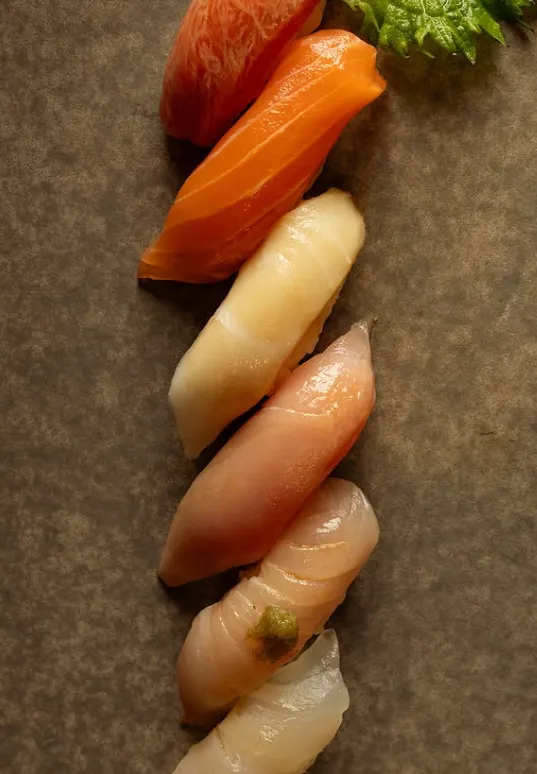
When you're hiring someone in Miami, how can you tell whether they can embody the IKIGAI philosophy?
Juan Jose Xacur & Andres Lebrija: I don't know, I don't have something that I can tell them, but there is something that we do that I think is what works. We are here every day, all day. Leading by example. That is the first thing I tell the people we hire: we're very different. Andres and I, Andres is the structured part of the business. I'm more like the creative, dreamer side of the business. So when I hire a new employee, I always tell them, Please watch me.
Watch how I do things, how I talk to the clients, how we're always here to serve, how there are no egos. So try to watch me, try to copy me. And that's been with every single employee.
So when the new one arrives, they get the hang of it quickly that you're in a place where we are nice people trying to be nicer for a very good clientele. Yeah. I would also add that we are also always looking for our collaborators to be happy, you know, like if you can communicate that you're happy with the client, or you look, you know, you can maybe get some of that to the client.
He'll get a much better service out of you, and money will come after that, you know, but first of all, it's not all about how much I will be making. It's like, how happy am I with the team I'm working with and the group's philosophy as a whole, you know?
Happy chefs cook better food, and happy servers have better relationships with the clientele.
So do you believe they already found their IKIGAI in your place?
Juan Jose Xacur & Andres Lebrija: Yeah, I mean, I also know a lot of people who have found their IKIGAI. For example, the chefs who came with us from Mexico City left their whole lives there. We brought five wonderful chefs. They are amazing. And I mean, each one of them has told me that this is their IKIGAI. And from the new employees, I mean, it is a good philosophy to get on the bus. I hadn't thought of it that way, but we're actually pursuing it for everyone in the restaurant, whether they work with us or come here as clients, to find their IKIGAI. Actually, our Wi-Fi password is “find your IKIGAI”. Know, like, actually, we're trying to make people find their IKIGAI because it's a very good philosophy to live by
When hiring someone, what is the most important technical skill you look for in a culinary job seeker?
Juan Jose Xacur & Andres Lebrija: For me, the most important thing I learned is the face-to-face meeting and to get the feel of the person without a doubt. I hire by going with my gut. I mean, and then I'm there as do all the other. I would also say experience is always key. You know, we all try to find, not always, though.
It does give you some certainty, or at least a little bit of what or who you are looking at. For certain positions, I think experience is key. Sometimes we need a position where the person can come in and do the job on the spot, on the fly, so experience is key. And having a shorter learning curve, you know. But in other cases, we actually encourage all I say is I want a person who's a good person who wants to be here.
I don't care if he knows nothing. As long as he's a good person and wants to be here, we sometimes even prefer to build up our own people.
That is when we have the time to do so. Just for you to know, Matt: three of the five chefs here with us started nine years ago, and all of them were dishwashers. Exactly. All of them. They started as dishwashers, and they went to the line cook. And then each of them had their own restaurant in Mexico City. We built like a dream team, and they all came with us.
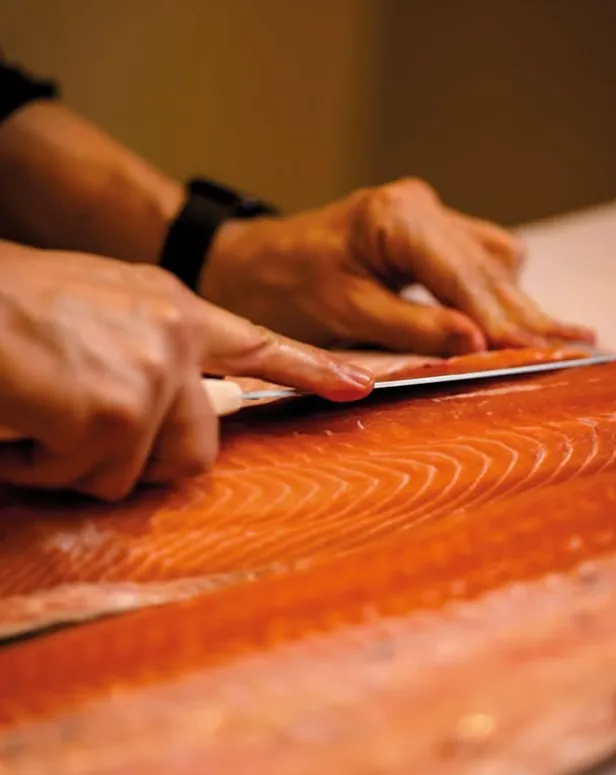
So, how did this happen, like the move to Miami, and what do you have next?
Juan Jose Xacur & Andres Lebrija: So the move to Miami happened because I've been coming to Miami since I was 18 years old. My sister lived here for 10 years.
So obviously, when I started IKIGAI in Mexico, I came to Miami, and this is a city that is like, for every restaurateur, it's like a goal. And to be able to open in Miami or in New York or in Dubai or in Vegas or in London or in Paris, there are like cities. And I think Miami has recently become even more one of those cities. So I always said, like from six years ago, I said, we're gonna open in Miami one day. This was when we had two restaurants in Mexico, and everybody, even at my face, goes, No, come on, man, Miami. And I said we're gonna do it, we're gonna do it. And my brother and I were looking for retail spaces. We've always known it would be in Brickle.
And in answering your question, do we plan to open more places in the U.S.? Yes, of course, of course. We have a pretty aggressive strategy. Amanda, we want to build it up in Florida very quickly with the sushi. Think the plan is a little bit steadier. We want to open one more in Miami without a doubt. But then I would like to skip to other cities. And Paris. Paris is another dream, Matt. I'm manifesting it here publicly right now. I want to open in Paris one day.
Since you mentioned sushi, I want to ask who came up with the tuna-cutting ceremony?
Juan Jose Xacur & Andres Lebrija: It's amazing. It's an experience that's funny for us. It's even kind of like mundane because, in reality, it happens twice a week.
It's just that we do it behind closed curtains. Mean, twice a week we receive the tuna, the chefs have to carve it. 220-pound tuna. The 220-pound tuna, yeah. And since Mexico, where we started doing the shows, we've noticed it's really a unique and very special experience for clients.
You forget not being on the other side, that for them it's something completely new, completely unique.
So we're doing it every first Tuesday of the month right now. The reaction of the people is asking us to do it more. We don't want to spoil it a little bit, it's very fun for anybody that can come, and it is an art to see the chefs, yeah, in 20 minutes give all the tuna; it's a way to communicate to the clients the freshness of our ingredients in our menu.
Something that happened last time, I don't know if I should be talking about this, but the event, the cutting ceremony, was supposed to start at 7 p.m.. Then the fish, the tuna, was actually swimming in the sea. It got delayed, the plane got delayed in Los Angeles because it flies from Ensenada to Los Angeles, Miami. We had to push back the event by 9 p.m., and for us to tell our clients that the tuna hasn't arrived because it was swimming in the morning gives you the credentials that this is as fresh as you can get.
Everybody indeed told us, like, Why are you risking it? You should get the tuna one day before, and that way, there's no problem. And I was like, no, no, it's not the same. And that's one of the risks, but we're willing to take it because that's our philosophy. Almost everything is daily here.
And a very big part of the tuna cutting, since you asked, Matt
I'm a firm believer that the more you know about what you're eating, the more you anticipate it, and the more someone builds it up, the more you're going to enjoy it.
So in here, it's an event that you're watching the tuna for 30 minutes. You're hearing about it because we give some words, we explain the different parts, what kind of animal, etc. So everybody is like, excitement is very built up until you get those first three pieces of Nigiri, of Sashimi, that you saw recently cut, and it tastes better, man.
Find available chef jobs in Miami, or check out more interviews like this brought to you by OysterLink to learn about the industry. You can also get them straight to your email by creating an OysterLink account and joining our newsletter.
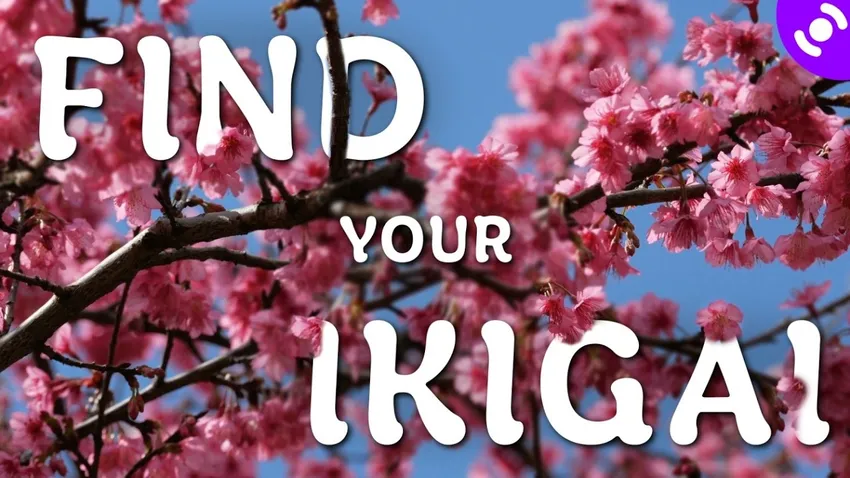
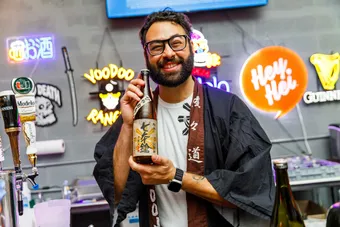
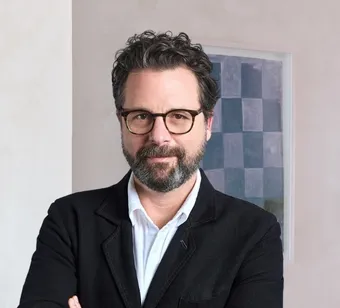
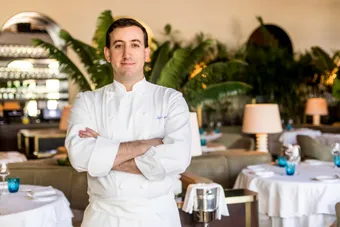
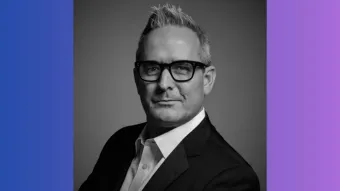
Loading comments...